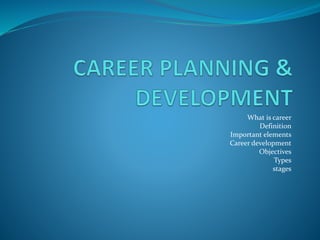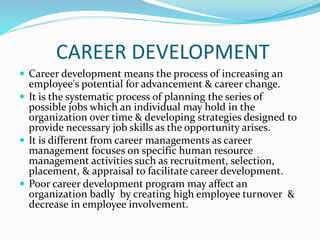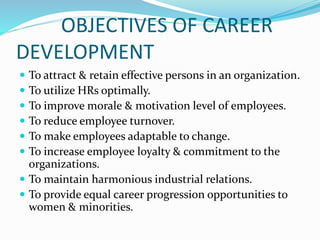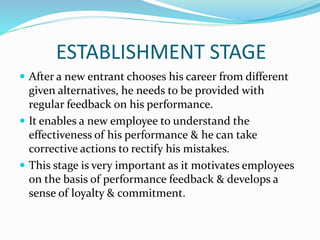A career is defined as a sequence of related jobs and work activities over a person's lifetime. It involves progression to roles with increasing responsibility, status, and rewards within an organization. Career development is the systematic process of planning one's career path and developing necessary skills. It involves different stages - exploratory, establishment, maintenance, and decline. The goals of career development programs are to attract, retain, and motivate employees while allowing them to advance their skills and roles over time.










